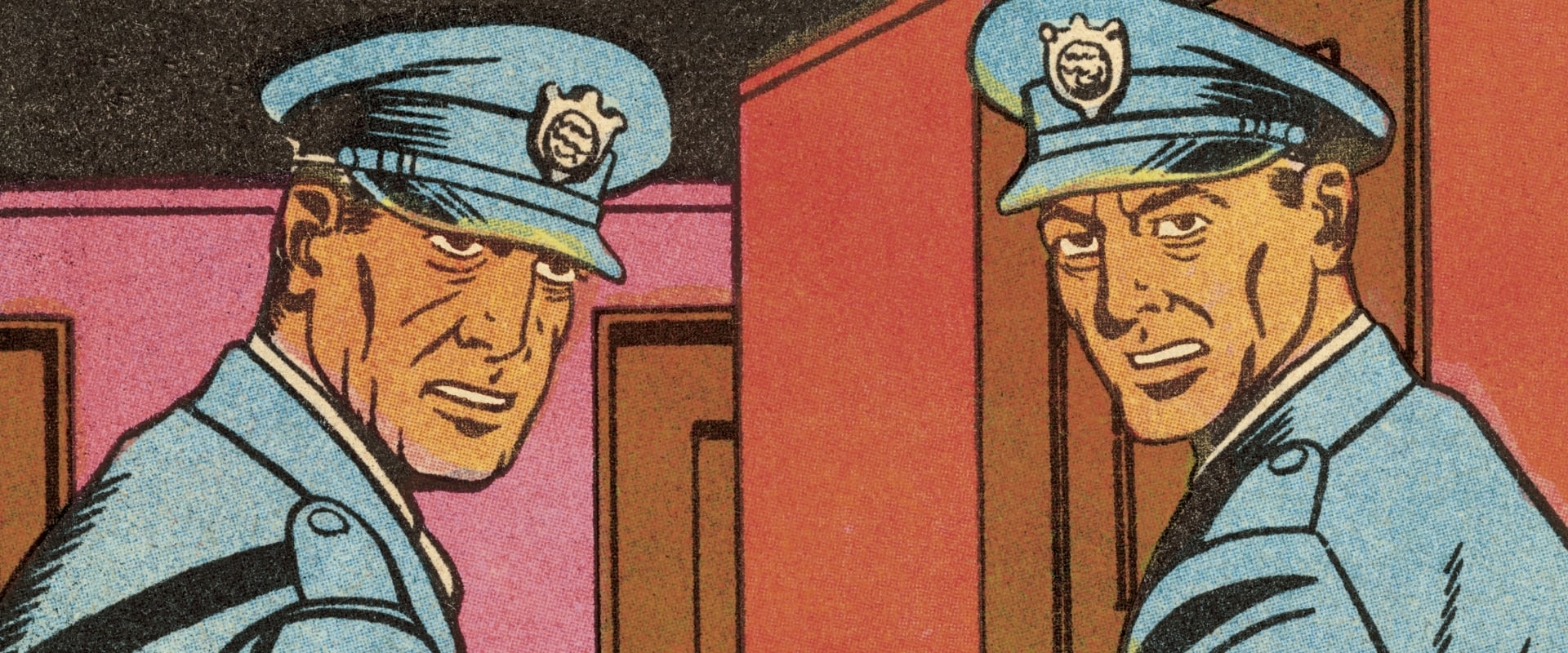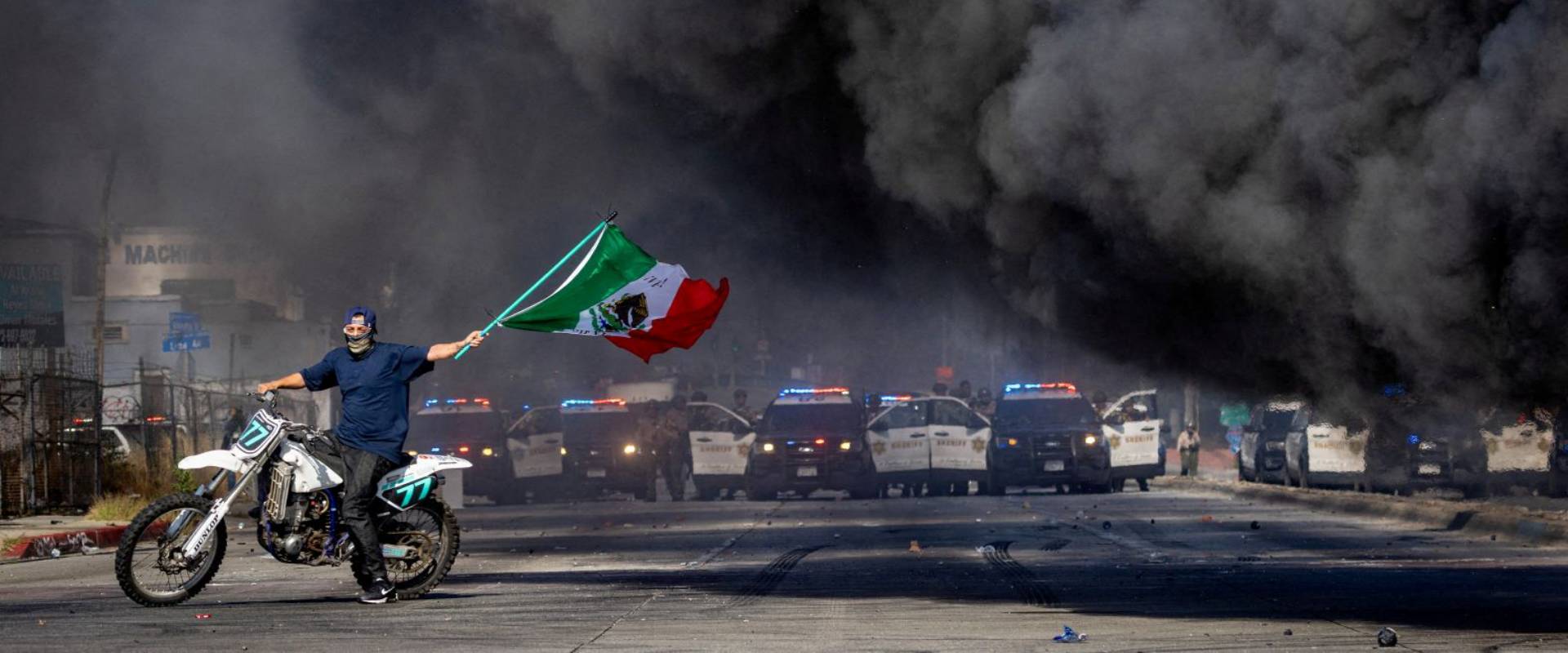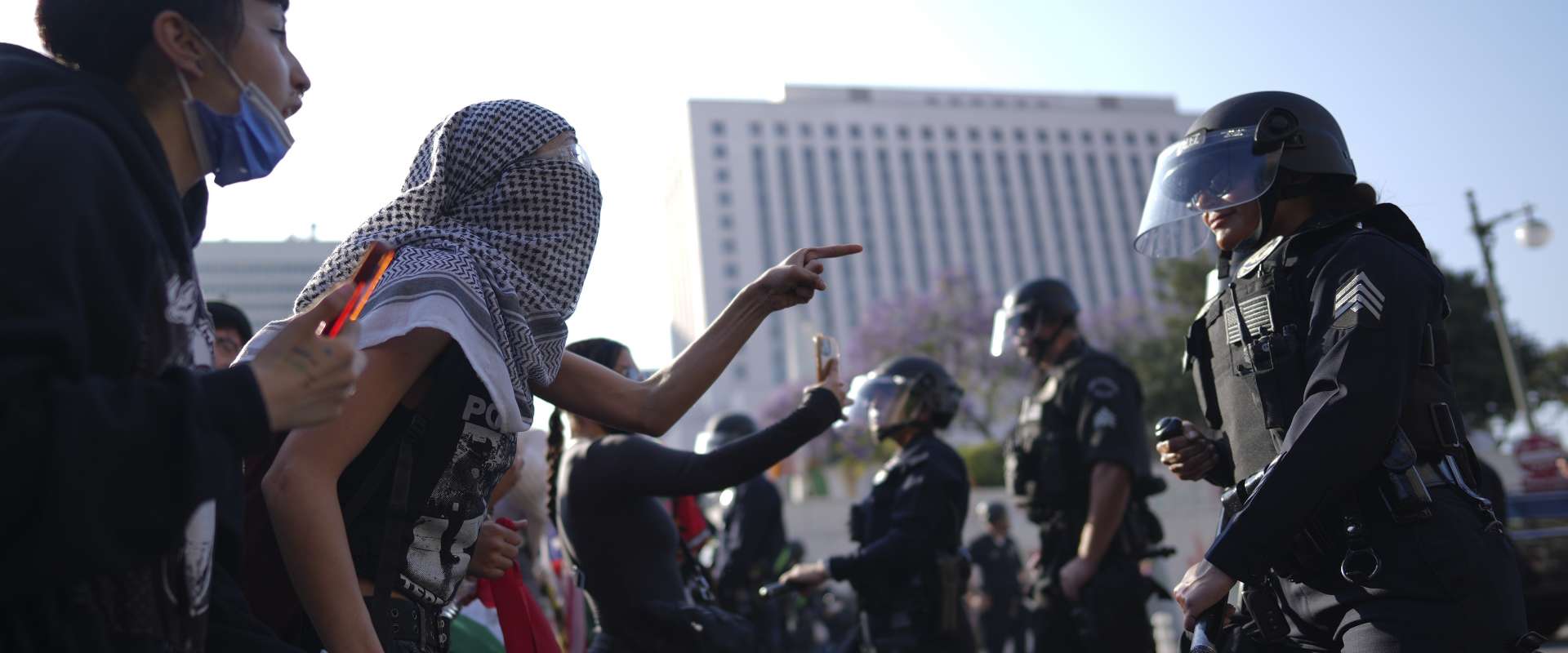The anti-racist and anti-police brutality movement has turned toward abolitionism in recent years. It has called for the complete elimination of police and prisons. This is a radical turn and to be applauded, but it does have its problems.
One of the key arguments for abolitionism is that there are better ways to handle conflict and social harm today. Advocates often put forward programs of restorative justice and transformative justice (restorative justice and transformative justice). The exact definitions of these vary, but the latter is more radical — transforming relations rather than just restoring the status quo before the incident.
Marxists are abolitionists
Revolutionary Marxists support the goal of abolition. From the time of the Paris Commune, Marxists have advocated the abolition of the bourgeois state. As Lenin noted, the core of the state is the “special bodies of armed men” and their support systems: police, armies, courts and prisons.
One of the primary reasons Marxists support abolition is that the current state is a state of the capitalists. Its role is to preserve class domination by the rich, protect their property, and ensure the smooth functioning of exploitation. In order to divide the working class, the state also upholds institutional racism, sexism, and other forms of oppression. Unlike liberals, Marxists don’t see the state as a neutral body that mediates society’s differences. The bourgeois state is the concentrated political power of the class enemy. It only grants concessions to the poor and the working class under the pressure of mass struggle, and only to maintain its own rule. The rulers will take back these concessions whenever they feel it is possible.
Marxists also oppose the repressive apparatus of the state because of its horrible effects in general. The capitalist state wages wars that kill thousands or millions; it imprisons millions instead of providing them decent housing and social support; it enforces institutional racism and sexism either openly or quietly; it criminalizes freedom of expression. The list could go on indefinitely.
There will always be police as long as capitalism exists. Interpersonal crime is not the reason police exist. The ruling class needs the police to keep order, to protect its property and power. This is why the ruling class will never allow complete abolitionism while it holds political power.
For these reasons, we want to weaken state repression as much as possible. We want the state to have fewer resources to suppress workers. We want its police to have a harder time enforcing the law. We want it to have fewer options for subjugation. We support any reform that moves in this direction.
On the other hand, we oppose any reform that strengthens the carceral system, rehabilitates it in the eyes of the public, or helps it win cooperation from the community. For example, we oppose “solutions” such as better police training and community-oriented policing. Full abolition is impossible while capitalists have state power.
Since Marxists endorse the goal of abolition, in the Summer of 2020, we supported popular demands to “Defund the Police.” This was always a vague demand. Liberals who claimed to support it stressed that it only meant trimming around the edges and denied it was motivated by abolitionism. More radical people saw it as a step toward abolition and often openly claimed it on that basis.
In the long run, Marxists argue that full abolition is impossible while capitalists have state power.
Naive abolitionism and anticapitalism
Angela Davis and other activists have often been clear about the nature of reforms that should be supported. She has argued along the lines noted above — against reforms that actually reinforce police power. Davis stresses anticapitalism. Unfortunately, she and others have not been clear about what their anticapitalism consists of in relation to abolition. Their implication has been that abolitionism can over time transform the current system into a humane one. They generally do not explicitly call for socialist revolution and the revolutionary workers’ party that will be necessary to bring this about.
There is another problem with most abolitionism: it is naive. Davis and others imply that prisons are not needed because other methods can solve the problem of social harm even under capitalism. In fact, neither transformative nor restorative justice can eliminate interpersonal crime under capitalism.
To be fair, many abolitionists couple their arguments against police and prisons with an understanding that capitalist exploitation, oppression and poverty cause crime. Therefore solving the fundamental causes of crime must go along with the use of transformative justice and restorative justice. This is an important emphasis.
Crime under capitalism
However, it does not answer the question of what to do about crime today. To people legitimately frightened of interpersonal crime, abolitionists answer that prisons don’t enhance safety and that transformative justice and restorative justice are more effective. This may be true, but there will always be horrific interpersonal crime under capitalism. It will not be solved by transformative justice and restorative justice or more social programs.
It is true that in general, police do not interrupt crime, but attempt to catch perpetrators after the fact. It is also true that reducing poverty and other causes of crime can lower the incidence of interpersonal crime under capitalism. Marxists support any reduction of poverty now. An ounce of prevention really is more effective than a pound of cure. Our partial solution to crime is to struggle against the causes of crime that capitalism produces: poverty, unemployment, racism, sexism, alienation, etc. Putting resources into these issues will do far more than police and prisons to cut into interpersonal crime.
Yet, even with these measures, the truth is that under capitalism, there will always be crime. To imply that crime can be eliminated by transformative justice and restorative justice under capitalism is unrealistic. Most people realize this and will be turned off to abolitionism if advocates don’t acknowledge this sad fact. Further, there will always be police as long as capitalism exists. Interpersonal crime is not the reason for the existence of police. The bourgeois class needs the police to keep order, to protect its property and power. This is why it will never allow complete abolitionism while it holds political power.
Too often abolitionists imply that the fundamental problem is repression, not capitalism.
If the capitalist state was concerned with eliminating interpersonal crime, it would put more resources into removing the causes of crime. It cannot do that because this would cut into profit. If workers had secure housing and healthcare, for example, they would be harder to exploit. Increasing social welfare hurts the capitalists in two ways: it might require higher taxes on their profits, and it would make workers more confident and able to resist exploitation. Spending money on repression makes workers more insecure and easier to control. It also divides the working class by encouraging workers to blame “criminals” for their problems.
Another important point is that interpersonal crime is not the only crime. Corporations, the rich, and capitalist governments are directly responsible for much of it. Employers kill thousands of workers every year in on-the-job accidents.. The opioid crisis and illegal drug overdoses are caused by poverty and deteriorating social conditions. They kill thousands. Poverty, homelessness, racism and sexism are other causes. War, economic sanctions, and other imperialist actions are other sources of death and destruction. Exploitation, the foundation of capitalism, steals billions each year from the working class. These are the results of corrupt capitalist institutions, while the press and politicians focus only on interpersonal crime. Their emphasis on this is an attempt to divert our attention from the capitalist system that is the ultimate source of premature death, injury, and distress in our society.The Marxist method of fighting crime is to struggle to eliminate its causes as much as possible now, and to organize for a socialist revolution. Nothing short of that will eliminate crime. We do not claim to have a complete solution for crime under capitalism.
The abolition movement has usually been unclear on these relationships. Some abolitionists imply that if people understand that transformative justice and restorative justice can solve interpersonal crime better than prisons, they will turn to abolitionism. They imply that if enough people support abolitionism and government social programs, the causes of crime can be eliminated.
This is a gradualist approach resting on the assumption that capitalism can be fundamentally reformed. It is therefore unrealistic. As noted above, the ruling class will never give up its means of enforcing its will voluntarily, and capitalism can never be reformed enough to eliminate the causes of crime.
Crime and revolutionary repression
There is one final aspect of naivety in the abolitionist movement: the anarchist idea that once we have a better society, no repression will be needed.
For revolutionary Marxists, the period after a successful socialist insurrection is a transitional period. Marx called it the dictatorship of the proletariat, or workers’ democracy. The working class will democratically hold full political power, and it will use that power to nationalize industry under worker’s control, to plan the economy to meet human needs, to overcome the division between mental and manual labor, and to reduce and finally eliminate class divisions.
However, this is a process! On the first day after the insurrection there will still be economic classes. There will still be residual racism and sexism. This means that the underlying causes of interpersonal crime will not be immediately eliminated. The mass of the population will have been transformed by revolution, but, it would be naïve to expect everyone to have been changed into fully cooperative people. The horrors of capitalism will have left individuals deeply damaged by exploitative, oppressive and alienating social relations. The “Socialist Human” will not arrive until well after the socialist revolution.
Even more important than this, the capitalists will use their remaining economic power to sabotage the transition to communism. They will resort to civil war. This is exactly what happened in Russia after the 1917 revolution. The new workers’ state will have to use repression against the capitalists after the insurrection. The workers’ state will wither away, but only as classes wither away and capitalists give up their attempts at restoration.
Engels pointed out the need for repression of class enemies during a revolutionary period in answer to “anti-authoritarians”:
Have these gentlemen ever seen a revolution? A revolution is certainly the most authoritarian thing there is; it is the act whereby one part of the population imposes its will upon the other part by means of rifles, bayonets and cannon — authoritarian means, if such there be at all; and if the victorious party does not want to have fought in vain, it must maintain this rule by means of the terror which its arms inspire in the reactionists.
Marx and Engels were not just concerned about the capitalists. They were also concerned about the capitalists using the lumpen proletariat against the workers. By lumpen, they meant primarily petty criminals.
For these reasons, a workers’ state will need to use repression against the enemies of working-class power during the transition. Abolition of the bourgeois state does not mean the end of all state authority. Authority, which must include repression, can be progressive if exercised by a democratic workers’ state. The new workers’ state will have to decide exactly what type of repression is needed,however the use of prisons cannot be ruled out. In the history of revolutions, the problem has been that workers were too lenient to their class enemies, not too repressive.
In summary, abolitionism can be a step in the direction of a classless, harmonious society without repression in the long run. However, the dominant politics of the current abolitionist movement are unclear about the need for a working-class revolution which would smash the repressive capitalist apparatus, and also unclear about the need for repression after a revolution. Too often abolitionists imply that the fundamental problem is repression, not capitalism. In fact, repression can be good or bad depending on who is using it for what purpose. In other words: Marxists support abolitionism as a step toward revolution, workers’ power, and finally communism.



